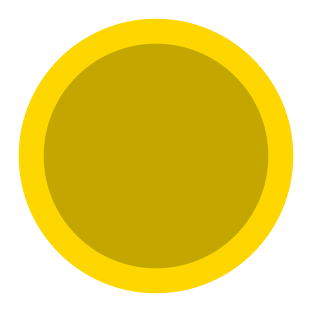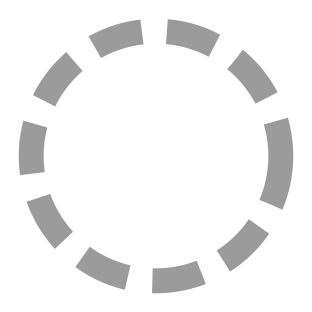Let’s take a moment to understand how to apply the simulator to the physical kit.
sources
In the simulator, you may have noticed that  leave behind a little “ghost” when they move:
leave behind a little “ghost” when they move:
We call this a source. These just show where we need to place a  at the start of the pattern.
at the start of the pattern.
data sources
In simple patterns like the one above, a source only needs to spawn a single  on the first turn. For more complicated patterns, however, we might need to supply a repeated string of marbles like
on the first turn. For more complicated patterns, however, we might need to supply a repeated string of marbles like 




 . Or supply an alternating string of marbles, like
. Or supply an alternating string of marbles, like 






 ; or even a random pattern like
; or even a random pattern like 










 . We call these complex sources data sources.
. We call these complex sources data sources.
Instead of showing a single “ghost”, a data source shows you the marbles it needs in sequence.
To make a data source with the kit, we have two options:
- Pause after each turn, and manually put in the
 that you need. This is quick to set up, but a bit of a pain to do.
that you need. This is quick to set up, but a bit of a pain to do. - Add some paths
 and/or turns
and/or turns  to act as an input track, feeding in the
to act as an input track, feeding in the  one by one. This takes more setup, but lets you run the device continuously.
one by one. This takes more setup, but lets you run the device continuously.
For example, these setups do the same thing:
As we progress with roons, we’ll start automating this process. Instead of manually putting in marbles, or creating a track, we’ll find ways for other patterns to supply the marbles that our pattern needs.
sinks
A sink is the opposite of a source: it’s a place where  disappear.
disappear.
What does this mean?
Obviously  can’t actually disappear. Whenever you see a sink in the simulator, it just means we no longer care about that
can’t actually disappear. Whenever you see a sink in the simulator, it just means we no longer care about that  — it’s irrelevant to the pattern.
— it’s irrelevant to the pattern.
In practice, it’s best to add in some paths  and turns
and turns  to move these
to move these  out of the disk. We don’t show these in the simulator, because it would clutter up the diagram; we just try to show you the key parts.
out of the disk. We don’t show these in the simulator, because it would clutter up the diagram; we just try to show you the key parts.
Later, we’ll look at strategies for waste management — how we can efficiently move unwanted marbles out of the system.
next
Now we’re familiar with data sources and sinks, we’ll look at a roon that helps us control these streams of marbles.
continue
